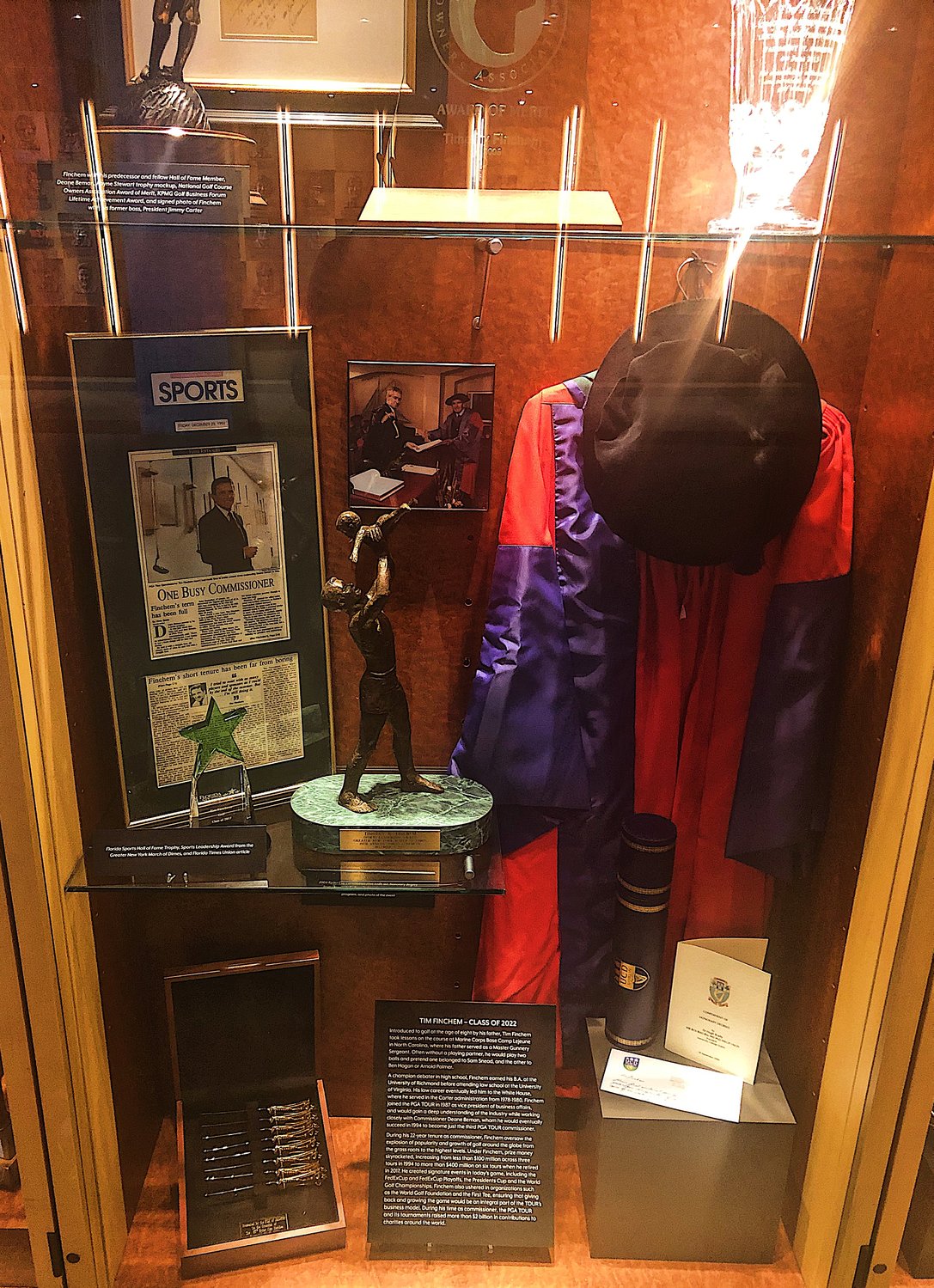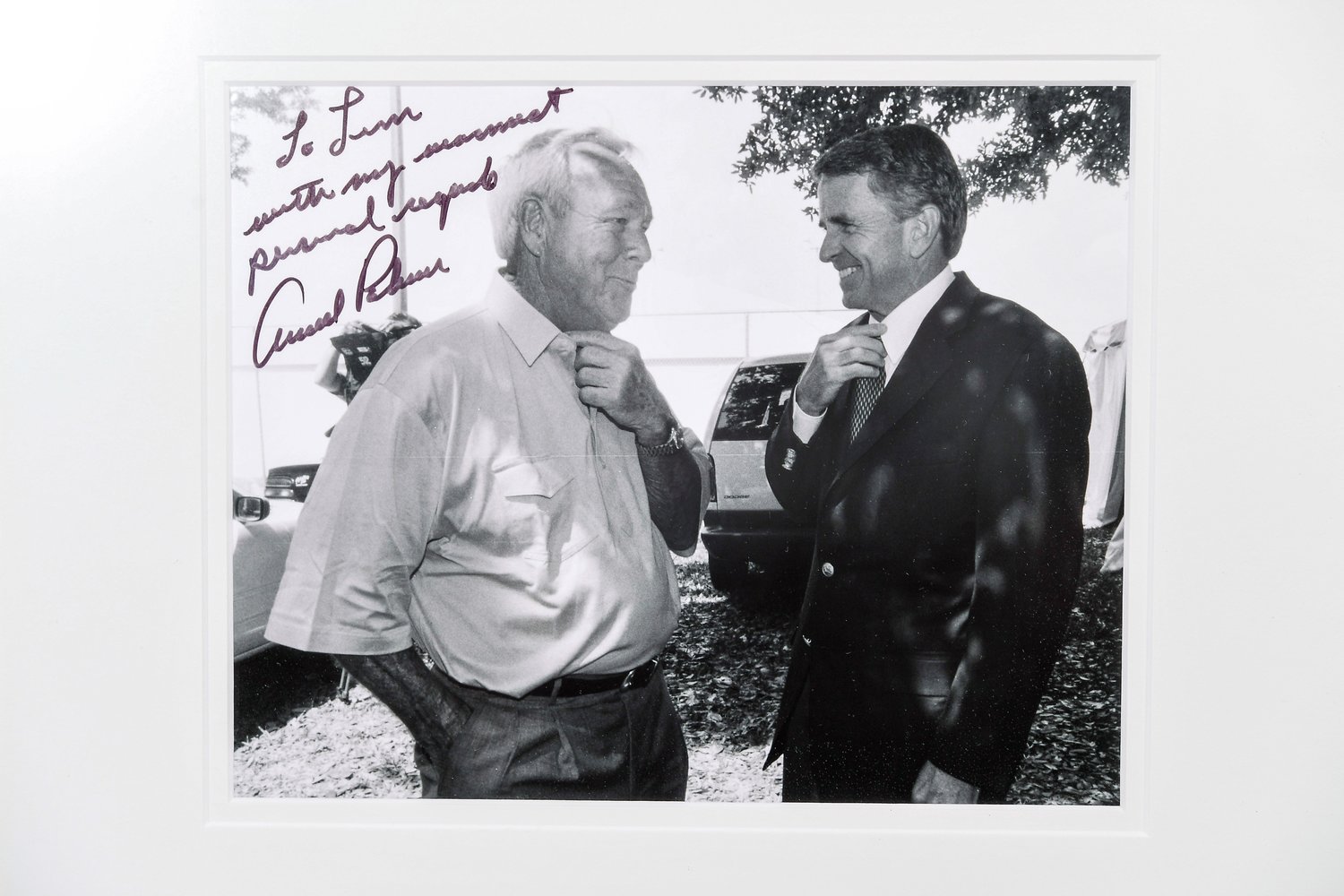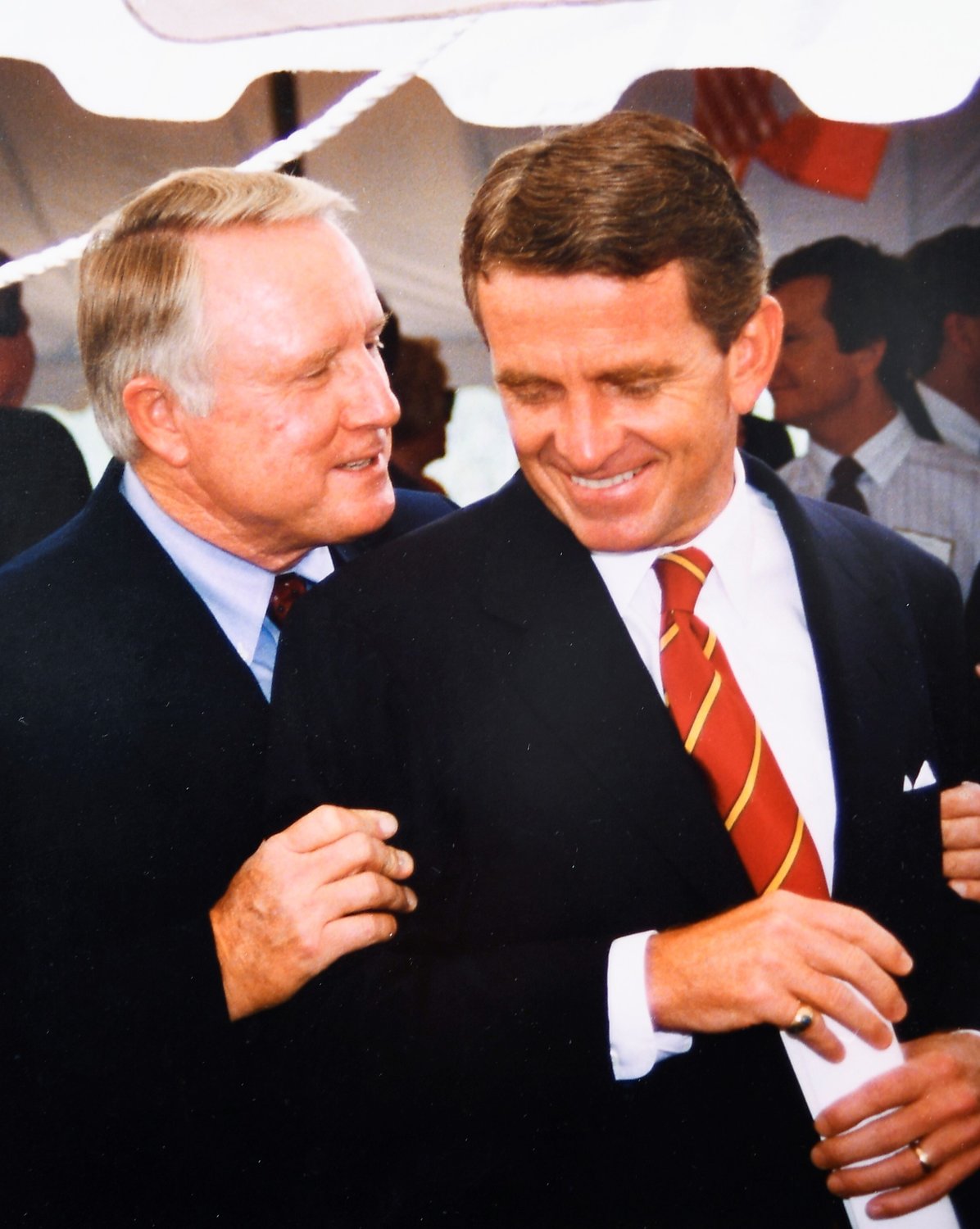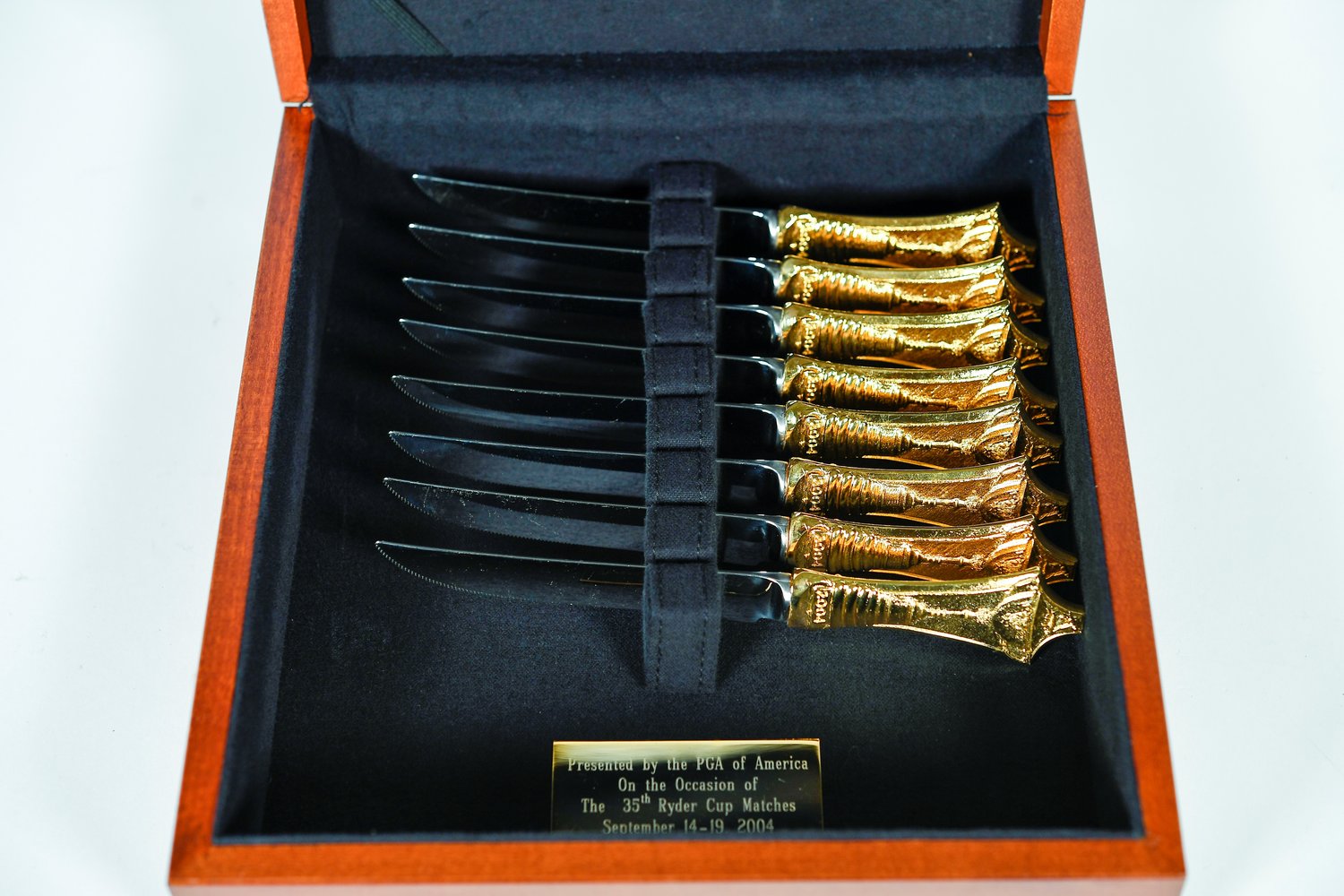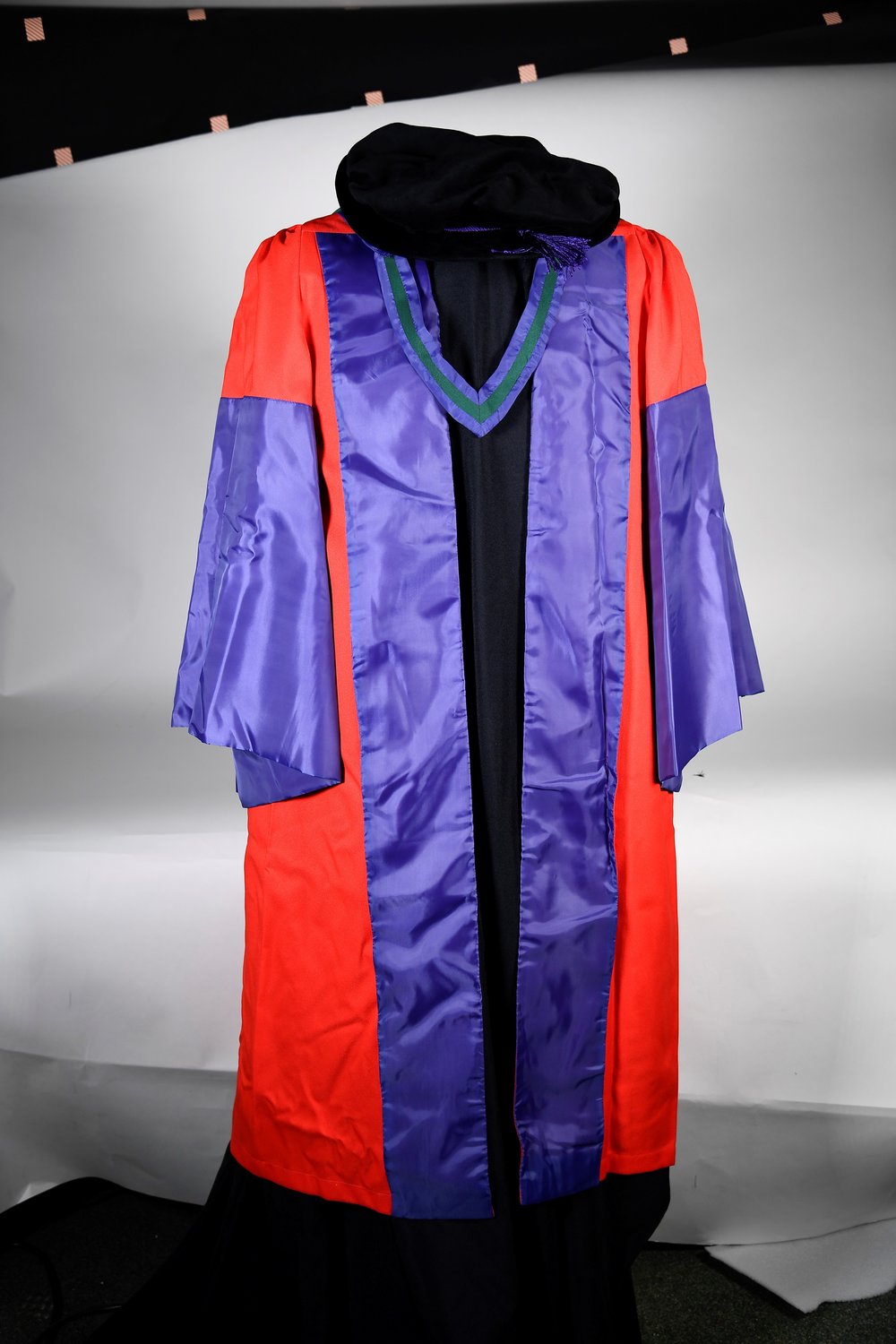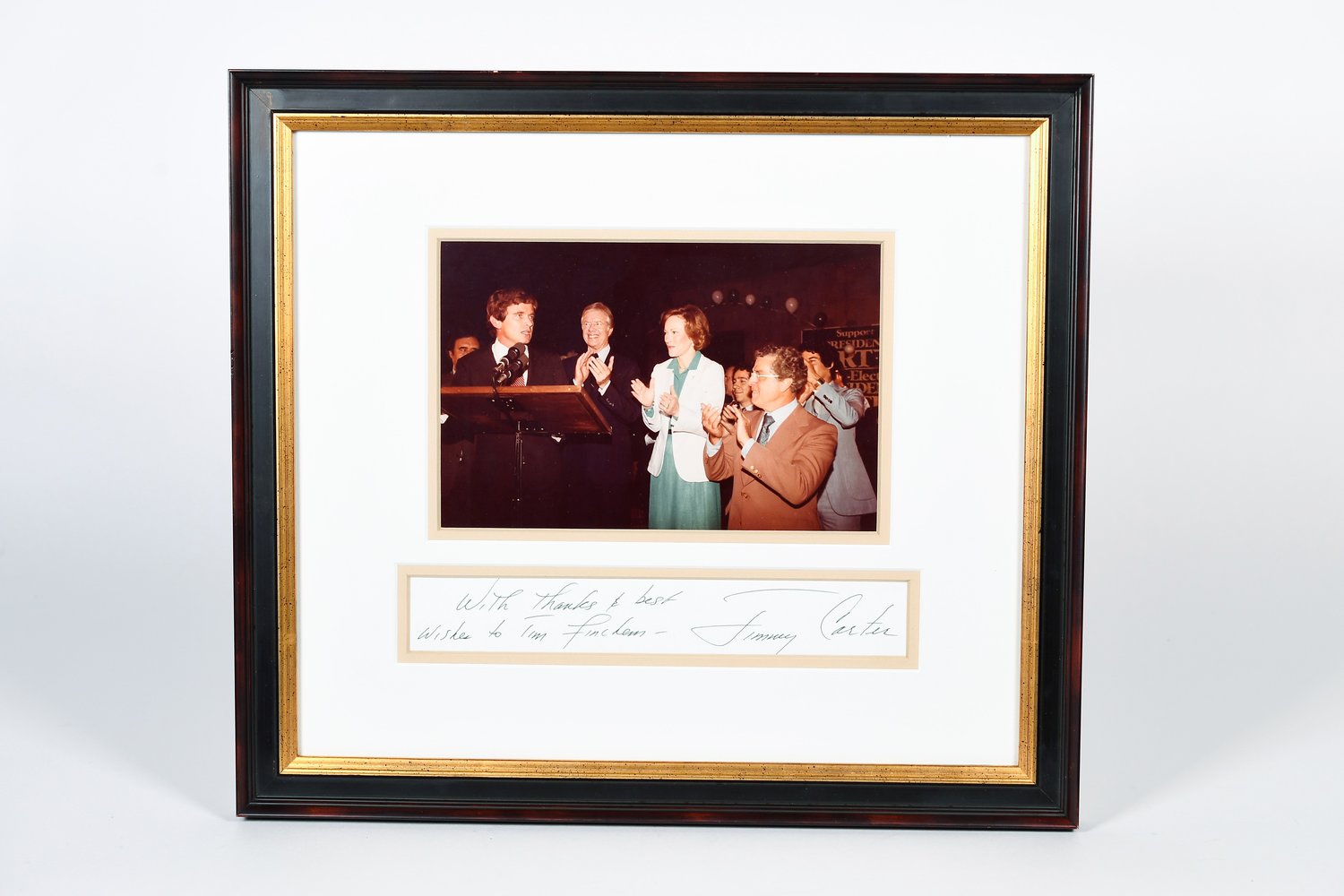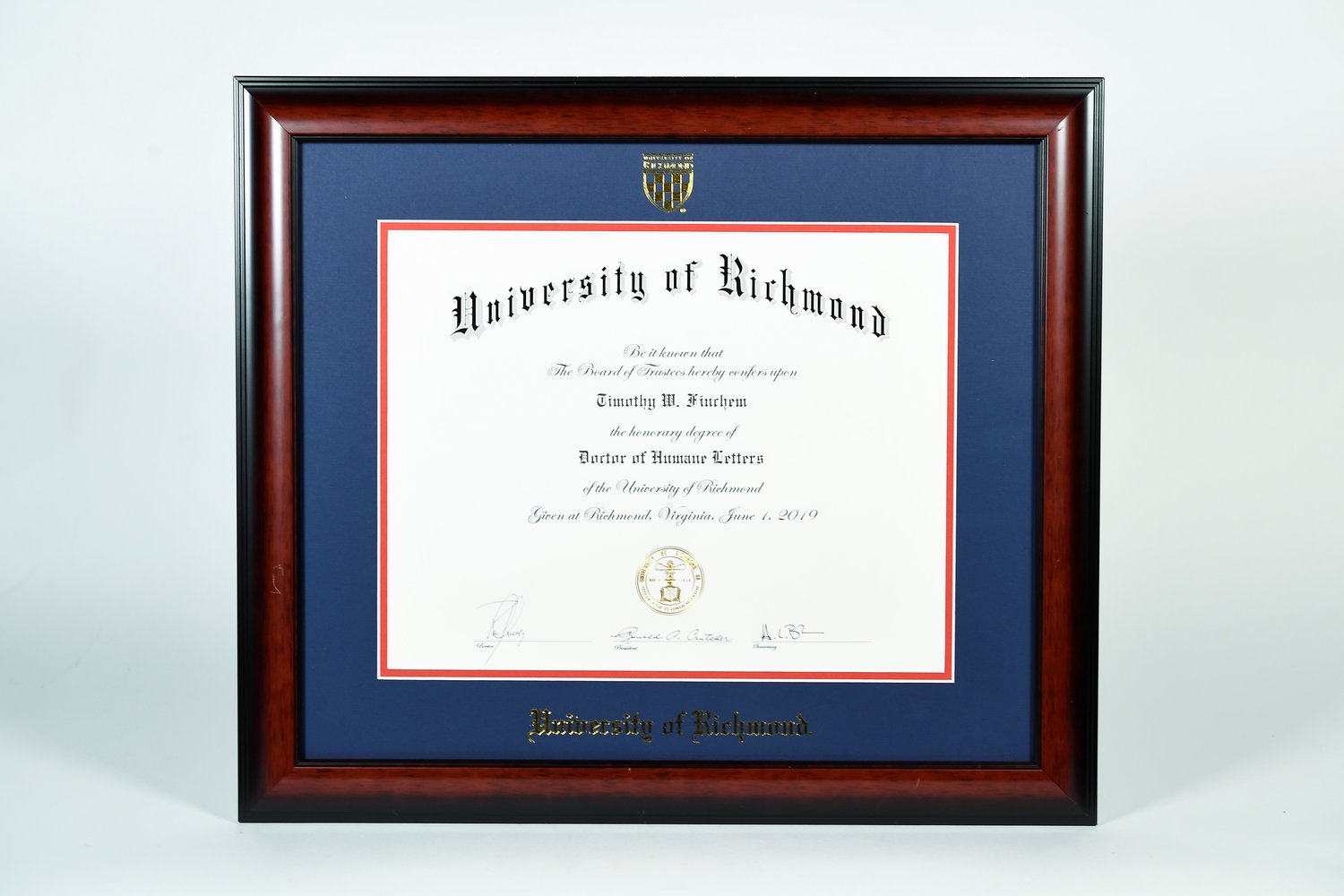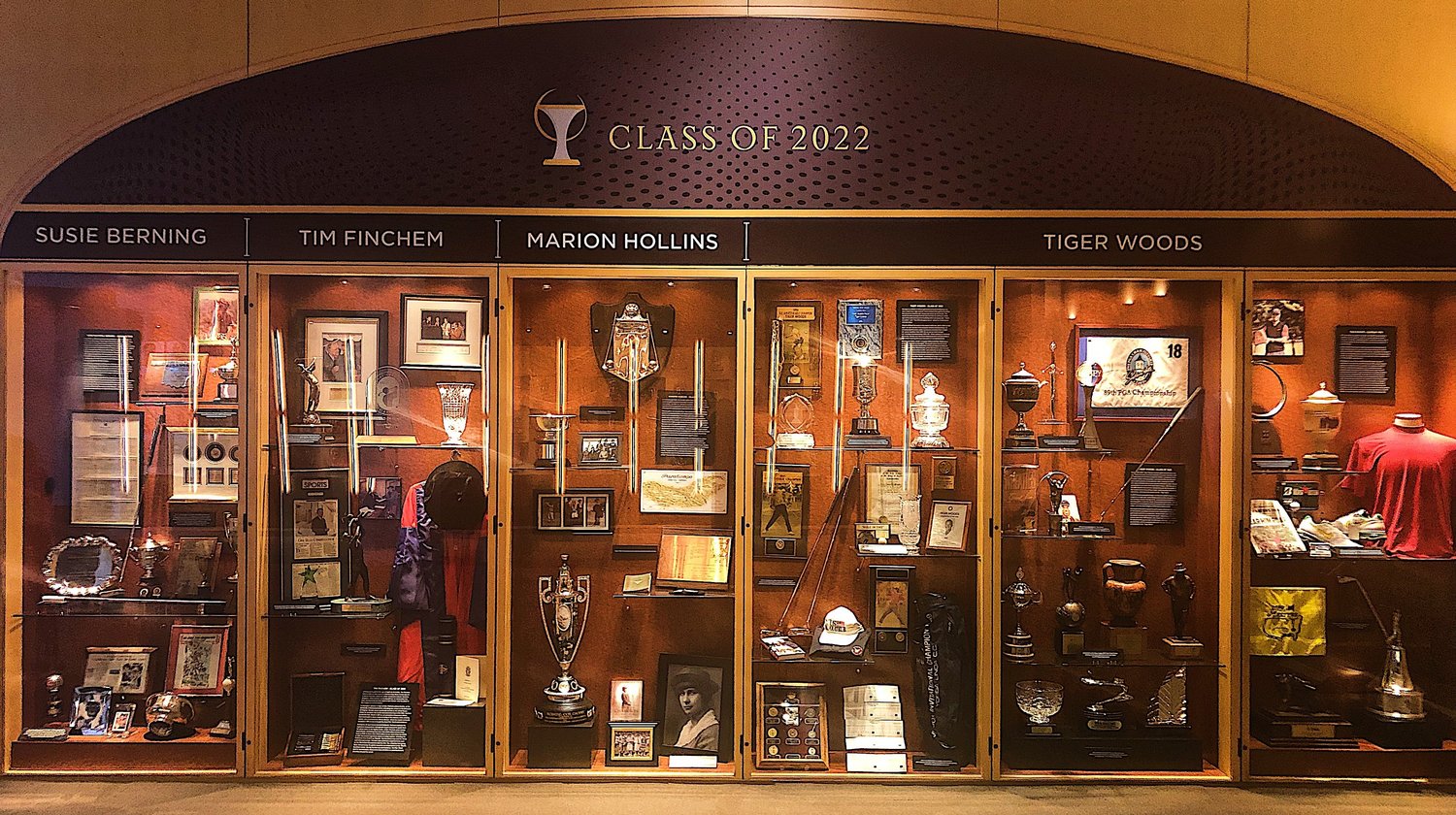Finchem goes into World Golf Hall of Fame
Tim Finchem, the third commissioner of the PGA TOUR, is being inducted into the World Golf Hall of Fame for his contributions as an administrator and leader. While some wonder if non-athletes should be enshrined, many in similar positions are already in the Hall, like Deane Beman, Sir Michael Bonallack, William Campbell, Joe Dey, Judy Bell, Clifford Roberts, Billy Payne and Ken Schofield.
Like every sports commissioner, Finchem faced interesting challenges during his time at the helm, although he does not even mention them. What he has said about the induction is that he is “delighted and candidly humbled by the recognition.”
In golf, he said, he was fortunate to meet with Gene Sarazen, Sam Snead, Ben Hogan, Byron Nelson, Arnold Palmer, Jack Nicklaus, Tiger Woods, the new stars of today and more. In tournament sponsorship, the lifeblood of the TOUR, he met nearly every significant CEO in the country and many in other countries. In charity, he worked with all manner of organizations. In golf, he brought groups together to solve common issues.
“They’re not putting me in the Hall of Fame because I played golf great,” he summed up. “It’ll be more about people that I’ve dealt with.”
Finchem still cherishes letters from Arnold Palmer, President Carter, President Clinton, President George W. Bush and Jack Nicklaus. One of his favorite photos to this day is with Deane Beman, his predecessor.
Finchem has awards from nearly every golf organization that exists and the gratitude of many organizations that the PGA TOUR has helped.
However, it's likely he will be best remembered as the commissioner during the Tiger Woods era, but he was much more than that.
“Tiger coming on the scene and generating the interest he generated took our sport to another level,” Finchem admitted. “His impact is ongoing. It's just unique and great, and as a sport we were blessed that he didn't like tennis that much.”
Looking back, one of Finchem’s biggest juggling acts was dealing with player demands, none more vocal than Greg Norman who was a world No. 1 for 331 weeks off and on, beginning in 1988 and ending in 1998. In the early 1990s, Norman began lobbying for a competition for world players that would be like the Ryder Cup. The PGA TOUR said yes to that, and its answer was the Presidents Cup, which began in 1994.
Then two months after the inaugural Presidents Cup, Norman called a press conference before the Franklin Funds Shark ShootOut to announce that he and others would start a world tour with “an eight-event, $25-million tour for the top 30 players in the world.” It was a lot of money in those days.
He and his partners said Fox Television had purchased the TV rights. It was known that Norman knew fellow Aussie Rupert Murdock, the head of News Corp., which owns Fox, and so the story was credible.
The PGA TOUR worked hard to keep its stars happy by upping purses, but Finchem also had to put his foot down. He forbade PGA TOUR players from participating under threat of losing their playing privileges on the PGA TOUR. He got some help from Arnold Palmer, who basically said it was bad form to go against the TOUR. And who was going to go against Palmer? Nobody.
Accidentally helping Finchem in this ongoing challenge was the emergence of Tiger Woods in 1996 and 1997. Woods changed the entire landscape of the sport and increased ratings and money for all professional golfers, at least those on the PGA TOUR.
But it didn’t stop Norman. In November of 1997, he announced his world tour again. This time, he promised 200 players, 40 events and $200 million in money. Again, Rupert Murdoch was mentioned. Again, Finchem countered, this time creating World Golf Championships, which bring together the best golfers from around the world.
However, dealing with challenges from Greg Norman was nothing compared to two significant worldwide events in the early 2000s. Both were huge problems for the sport of golf just as they were for the country.
The first was managing through 9/11 and the second was the economy in 2008 and 2009. One was a tremendous loss of life, and the other was a tremendous loss of wealth. Both impacted sponsors, equipment companies, golf travel and more. It also impacted millions of people.
However, the PGA TOUR found its way through those crises. They found that the qualities that make golf enduring were ones that sponsors embraced. And they created and supported more military- and veteran-outreach programs, which it was felt was the patriotic thing to do.
“When a company analyzed and really got into the weeds on the value they were getting, the PGA TOUR came across very positively. The combination of being able to generate value for sponsor guests and affiliate relationships was an obvious one,” he said about what were very challenging times for everyone.
As commissioner, Finchem was most proud to grow the charitable contributions of events, particularly THE PLAYERS, which in 2019, the last normal year, raised $9.5 million for charities in Northeast Florida. But he did much more. He was instrumental in the formation of World Golf Foundation, which worked to get golf into the Olympic games. He was significant in the creation of The First Tee, a groundbreaking organization to bring more diversity into the game by starting with youngsters. Millions of youngsters have learned the game through the program. President George Bush (41), an avid golfer when he had the time, became the honorary chairman of The First Tee.
As far as the reason for the TOUR’s success under his leadership, Finchem said, “When you hit at THE PLAYERS, the $3 million number, or a $4 million number, or a $6 million number, an $8 million number (in charity to Northeast Florida), that gets the attention of the community, and when you have the attention of the community, it gives you more flexibility to do more stuff, get more stuff done, raise more money and continue to grow.”
That same kind of charity work happened in communities all over the country where the PGA TOUR and Champions Tour and Korn Ferry Tour operate. Providing support to charities in each community builds strong bonds between all tournaments and their communities. And that charitable commitment is the foundation of the PGA TOUR.


